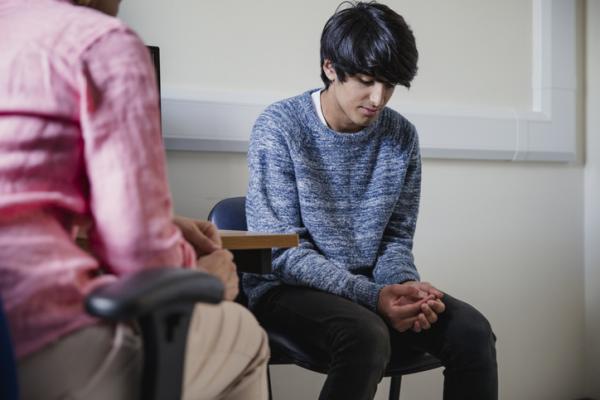There are lots of reasons why a child may choose to self-harm, and many ways they may do it. As a foster carer, it can be really upsetting to learn that your child is deliberately hurting themselves, and difficult to know how best to help them without making the situation worse.
This guide can give you a better understanding of why children self-harm and provide ways you can offer them help and support.
While self-harm often leaves scars and marks, it can still be very hard for parents and carers to know when their child has hurt themselves. Young people who self-harm often try to cover up any physical marks or injuries, making it difficult to know when they’re harming themselves.
Here are some of the early signs to look out for which could reveal that your child is self-harming:
These are just some of the signs that your child may be self-harming. Some young people can continue living a normal life whilst using self-harm to cope with their feelings, making it very hard to see how, when and why they could be hurting themselves.
If you suspect your child may be self-harming, even if there have only been a few small signs, it’s important to monitor their behaviour. This will help you seek advice on how to support them should the time come when you need to intervene.
Self-harm often stems from how a person copes with negative feelings and difficult experiences. People who self-harm often say hurting themselves gives them a release from the overwhelming feelings and negative thoughts which can build up over time, helping them control their feelings day-to-day.

Here are just a few of the reasons why a child may self-harm.
In most cases, there an underlying reason why a child would choose to self-harm. Negative experiences from their past, such as a family bereavement, bullying, or sexual abuse, are often to blame for self-harming behaviours. Mental health conditions such as anxiety, depression, low self-esteem, as well as sexuality, gender identity and public body image issues are also associated with a young person wanting to hurt themselves physically.
Self-harming can easily become a habit, so even when a child seems happy, they may still be harming themselves as a way of controlling their emotions and ensuring that negative feelings don’t return.
People self-harm in lots of different ways, and will often use different techniques depending on how they’re feeling at the time. While it can be difficult and upsetting to think of your child hurting themselves in such a way, it’s important to know some of the common forms of self-harming behaviour so that you know what to look out for.

Here are some of the early signs to look out for which could reveal that your child is self-harming:
These are just some of the techniques people use to self-harm. Children may use one or more forms of self-harm to control their emotions, with cutting being one of the most common ways of inflicting physical pain.
There are also less obvious behaviours which are classed as self-harm, including over or under eating, exercising excessively to the point of exhaustion, drinking heavily or taking drugs, or having regular unprotected sex with strangers. These forms of self-harm, though less obvious than those listed above, still show an intent to cause pain through potentially harmful physical behaviour.
If you think your child is self-harming, it can be very difficult to know what to do. You may feel upset, confused or even angry, and wonder how you missed the signs. And, if you only suspect they’re harming themselves, you may not know how to approach them and offer the kind of help and support they need.
Below, we list some things that can help your child cope with self-harm, as well as the resources we’d recommend for additional help and advice.

| Service | Details | Contact |
| YoungMinds | Confidential help and information for children and parents. | 0808 802 5544 |
| Harmless | Dedicated support, training and information for self-harm and suicide prevention. | [email protected] |
| National Self Harm Network | Forums and online chat for those who self-harm and their families. | Visit the website to get involved in discussions. |
| CALM (Campaign Against Living Miserably) | Dedicated support network for young men suffering from mental health problems or in crisis. | 0808 58 58 58 |
| Childline | The UK’s biggest crisis-support and helpline for children and their families, offering confidential help and support 24 hours a day. | 0800 1111 |
Self-harm can be traumatic, upsetting and very difficult to live with – but you don’t have to go through it alone. Reach out to specialist services or a family crisis helpline to get confidential advice and support whenever you feel you need it.
At NFA, we provide extensive support for foster carers, so they always have someone to turn to for help and guidance. If you’re interested in joining our network of dedicated foster carers, you can learn more about becoming a foster carer.